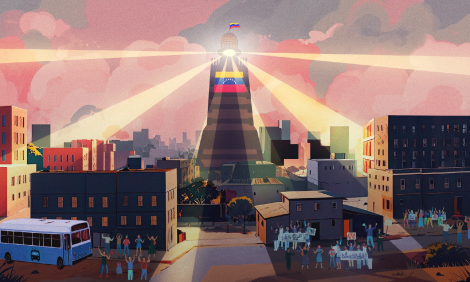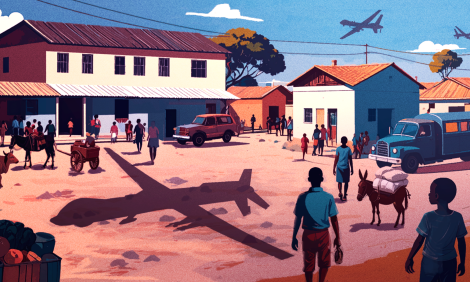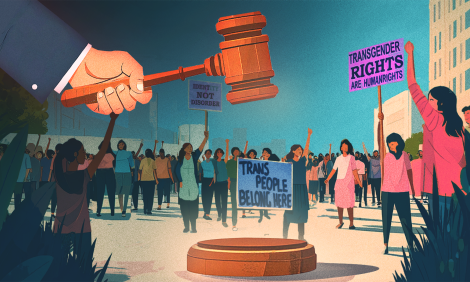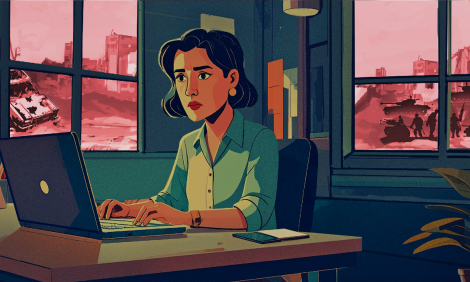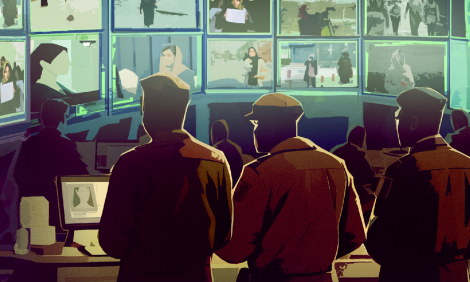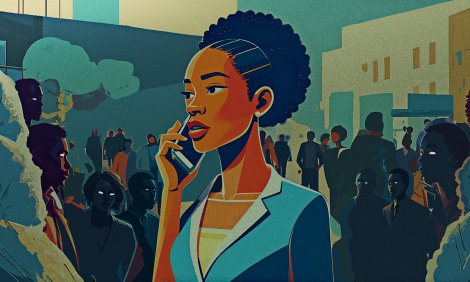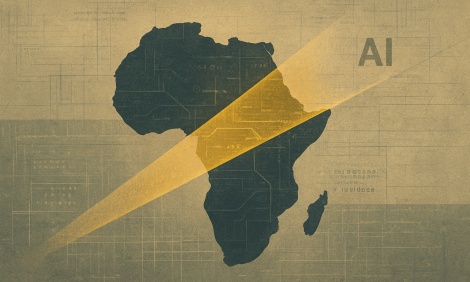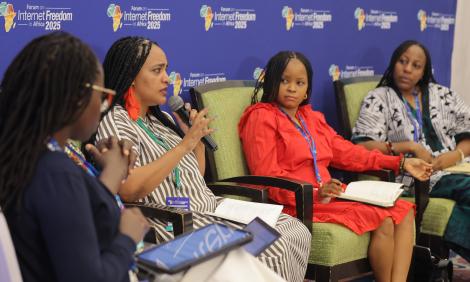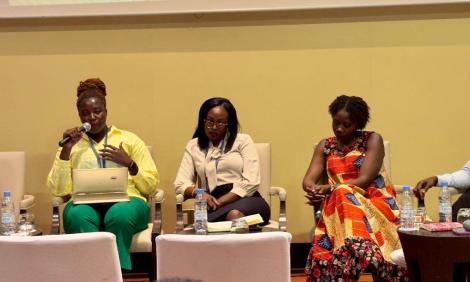Feminist talk
For women activists, Venezuela is a laboratory of repression, but also resistance
By Laura Vidal
In a web of chaos and control, where media, technology, and legislation is weaponised to carry out mass surveillance, criminalise dissent, cancel passports and restrict news, women human rights defenders lead and participate in creative ways to resist.
Feminist talk
More Than a Blackout: How RSF’s Digital Warfare Targets Sudan’s Women Defenders and Activists
By Suad Abdel Aziz
From women’s centres gone dark to mass displacement and starvation, the human toll of Sudan’s digital siege has been devastating and unreported—yet there is fierce determination from women on the ground to organize and stay connected.
Feminist talk
A Centuries-old Indigenous Trans Community in Pakistan is Being Attacked by Global Anti-Trans Hate
By Sophia-Layla Afsar
A community once linked to saints is being violently attacked locally with language and tech borrowed from U.S. anti-trans activists.
Feminist talk
Navigating War: Women Human Rights Defenders in Lebanon After Strikes on Journalists and Hezbollah
By Justin Salhani
With technology weaponized against them, Lebanon’s women human rights defenders are finding creative ways to support an estimated 520,000 women and girls displaced by war.
Feminist talk
How India Weaponises Kashmiris Against Kashmiris
By Rayan Naqash
In one of the world’s most densely militarised zones, surveillance is not just omnipresent, but is forcefully outsourced to its very own residents—deepening gendered repression and placing women defenders under a digital microscope.
Feminist talk
Weaponised Surveillance: Ethiopia’s Digital War on Women Human Rights Defenders
By Dr. Endalkachew Chala
Surveillance in Ethiopia has evolved beyond a mere function of the state—it has become a central strategy of governance.
Feminist talk
Another false dawn for Africa? Deconstructing the AI for Development Narrative
By Bobina Zulfa
This article critically examines the dominant “AI for Development” narrative in Africa, arguing that the continent’s engagement with global AI is shaped by unequal power relations that limit its transformative potential.
Feminist talk
Defending Human Rights Amidst Increasing Gendered Disinformation Cases in Africa
By Sandra Aceng
Feminist talk
A Queer Woman, A Ghosting Man, and the ChatGPT Confessional
By
A queer woman turns to ChatGPT to process the heartbreak of being ghosted by a man. What began as an emotional coping mechanism turned into dependency, as she used the AI to analyse patterns, decode behaviour, and regain control. This confession highlights how technology can mirror human bias, shape emotional narratives, and offer both comfort and distortion in moments of vulnerability and longing.
Feminist talk
The Role of Multistakeholderism in Countering Gendered Disinformation in Africa
By Sandra Aceng
This article examines the role of multistakeholderism in countering gendered disinformation across Africa, highlighting experiences from Uganda and regional dialogues. Drawing on panel discussions at FIFAfrica 2024, it asks for effective responses required for collaboration between governments, civil society, academia, and tech companies, given the complexity of disinformation rooted in patriarchy, politics, and cultural narratives. Inclusive, context-driven approaches that move beyond dialogue toward collective, coordinated action are needed.

